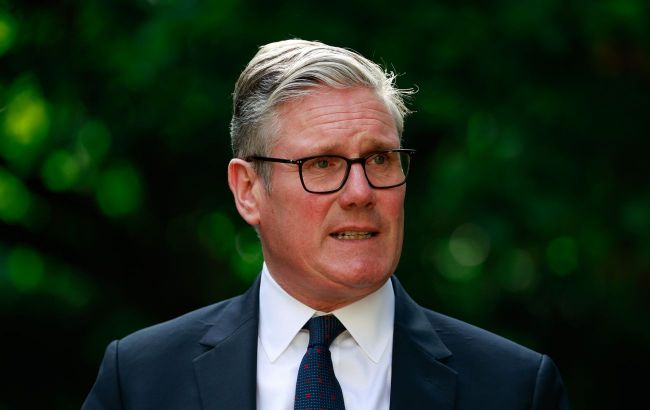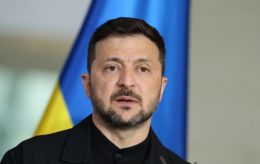UK slams Putin over Russian drones in Poland
 UK Prime Minister Keir Starmer (photo: Getty Images)
UK Prime Minister Keir Starmer (photo: Getty Images)
UK Prime Minister Keir Starmer said his country, together with its partners, will step up pressure on Russian President Vladimir Putin, Sky News reported.
"This was an extremely reckless move by Russia and only serves to remind us of President Putin's blatant disregard for peace, and the constant bombardment innocent Ukrainians face every day," said the UK Prime Minister.
Starmer said that he had already contacted Polish Prime Minister Donald Tusk to confirm support for Warsaw.
"My sincere thanks go to the NATO and Polish forces who rapidly responded to protect the Alliance," he said.
According to the Prime Minister, the United Kingdom, together with its partners, will continue to put pressure on Russia.
"With our partners - and through our leadership of the Coalition of the Willing - we will continue to ramp up the pressure on Putin until there is a just and lasting peace," Starmer emphasized.
Polish airspace was violated by Russian drones on the night of September 10. According to the latest information, 19 Russian drones entered Poland. Air defense forces managed to destroy only 4 of them.
In addition, after the night attack by Russia, "remains of a missile of unidentified origin" were found on Polish territory.
World reaction
NATO initially gave a formal comment regarding the drone incident, stating that the Secretary General was in close contact with the Polish leadership.
Later, Secretary General Mark Rutte said that the assessment of the situation is still ongoing, but regardless of whether this was intentional or not, the intrusion of Russian drones is absolutely dangerous and reckless.
French President Emmanuel Macron condemned the intrusion of Russian drones into Polish airspace. He called on Russia to put an end to this "rapid assault."
The EU declared solidarity with Poland and announced its intention to build a "drone wall" on the eastern flank, launching a project under its supervision.
In the material by RBC-Ukraine, read what is behind the Kremlin’s actions, why this happened now, and how NATO may respond.

